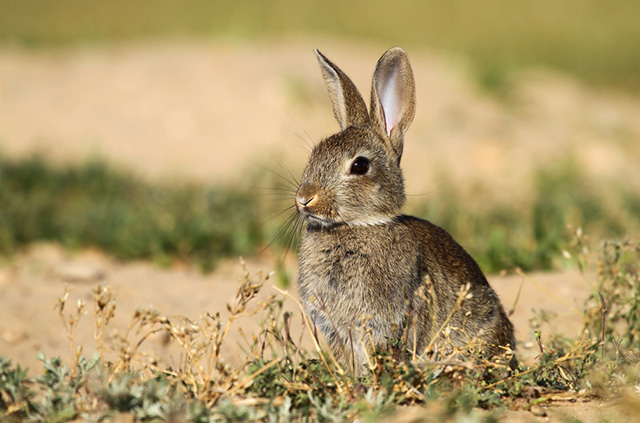What is Myxomatosis?
To help prevent your rabbit from contracting Myxomatosis, it is important to put various controls in place, for which there are two main methods: control of parasites and vaccination.
Flea control
Always keep a regular check on your rabbit for any signs of fleas and consider the regular use of an insecticidal treatment from your vet.
Mosquitoes and other biting flies may also transmit Myxomatosis in the UK, so nets and insect repellent can be used to combat this threat in warmer weather.
Your vet will be able to advise you further on these measures, since not all products are suitable or safe for rabbits.
Vaccinating your rabbit against Myxomatosis
A dual vaccination covering both Myxomatosis and Rabbit Haemorrhagic Disease (RHD) has recently been launched in the UK and is designed to replace the older Myxomatosis-only product during 2012. This new vaccine provides efficient and effective protection of rabbits against both diseases.
How often should I vaccinate my rabbit against Myxomatosis?
It is recommended that a single dose of the new vaccine is given to all rabbits over the age of five weeks and requires an annual booster to maintain protection.
Strains of Myxomatosis and vaccine development
Although Myxomatosis is typically fatal in rabbits without immunity, there are many different strains and some are more virulent than others. As evolution has progressed and the virus adapts accordingly, the modern myxoma virus which causes the disease may not always kill rabbits quite as readily or rapidly as older strains, although the disease continues to have a very high mortality associated with it in pet rabbits.
Myxomatosis in the UK
Previously, vaccination in the UK used the non-disease-causing Shope Fibroma virus, which was well proven in terms of safety, and was similar enough to the Myxoma virus to give useful levels of immunity.
Attempts at producing inactivated (killed) Myxomatosis vaccines have proved ineffective. Other approaches that have been taken abroad with mixed results have included using a weakened strain of the Myxoma virus as a vaccine.
The new vaccine is based on a novel approach which disables the myxoma virus in a way that renders it unable to cause disease, and at the same time preserves its ability to provide effective protection against both Myxomatosis and the equally serious Rabbit Haemorrhagic Disease (also known as rabbit haemorrhagic disease or RHD).
Can rabbits contract Myxomatosis after vaccination?
Vaccination can never guarantee 100% protection against any disease. However, when used as recommended in healthy rabbits, the new vaccine has been shown to be very effective at preventing this dreadful disease for a full 12 months, representing significant advancement over the older product which only lasted for 6 months.
Vaccination may sometimes appear ineffective if given to rabbits already incubating the disease, or those whose response to vaccination can be impaired by underlying health problems, poor nutrition, genetic factors, severe stress and drug therapy. For these reasons it is always important to consider other steps to reduce the risk of infectious disease. These include the control of fleas and other external parasites and steps to prevent exposure to flies in hutches and runs.
It is also important to avoid contact between domestic and wild rabbits and to ensure good basic husbandry and feeding to reduce the risk of potential health problems and associated stresses.
Your veterinary surgeon will be able to advise on a care plan for your rabbit which can address all these issues.
In addition, control of fleas, good basic husbandry and steps to reduce stress should be undertaken to reduce the risk of Myxomatosis and complement the protection afforded by vaccination.

